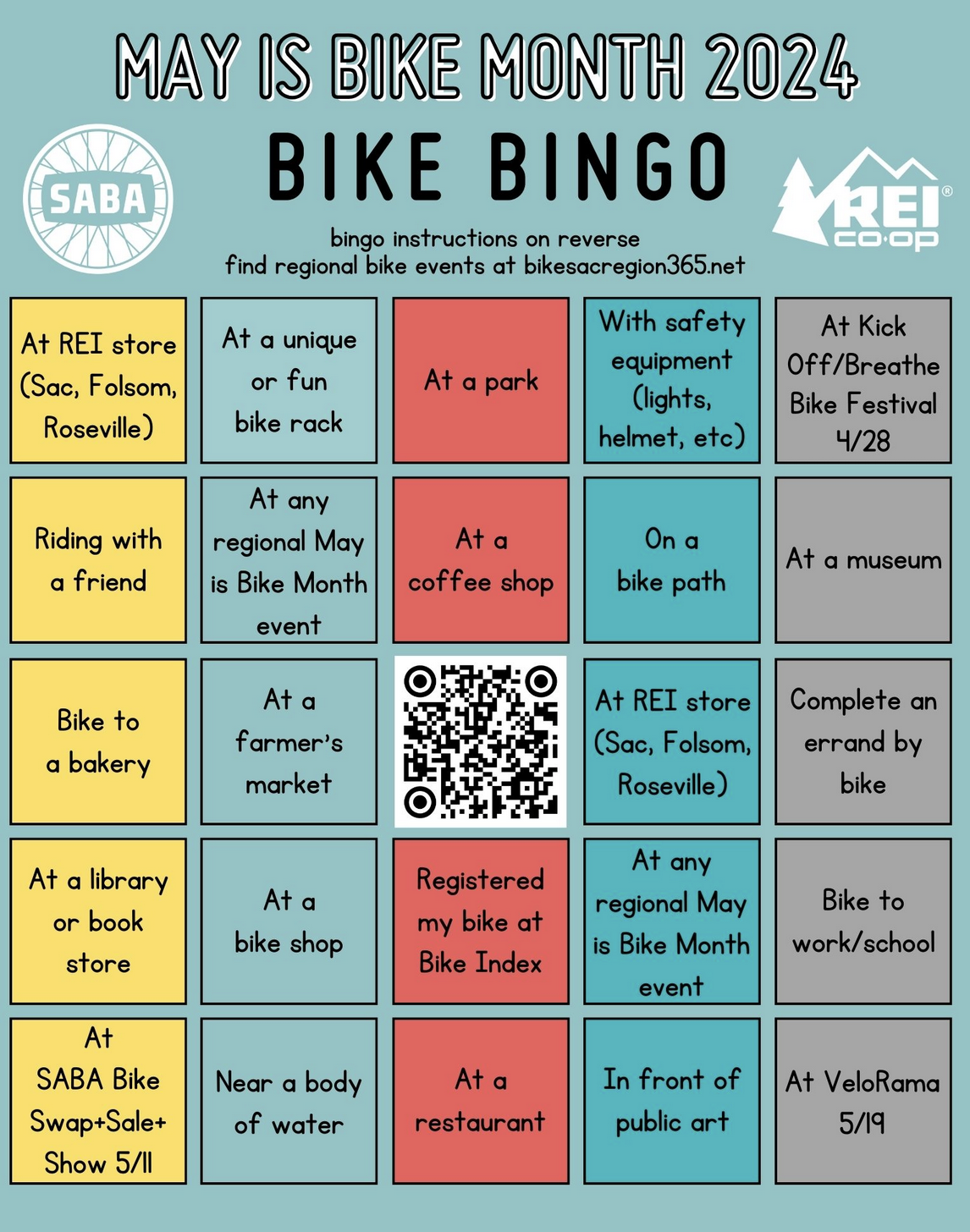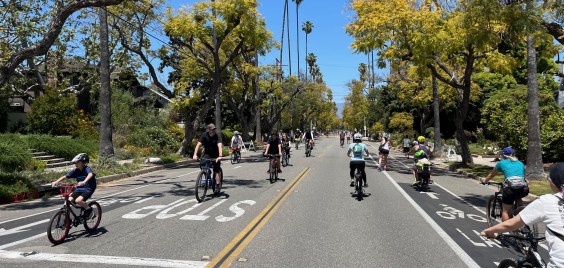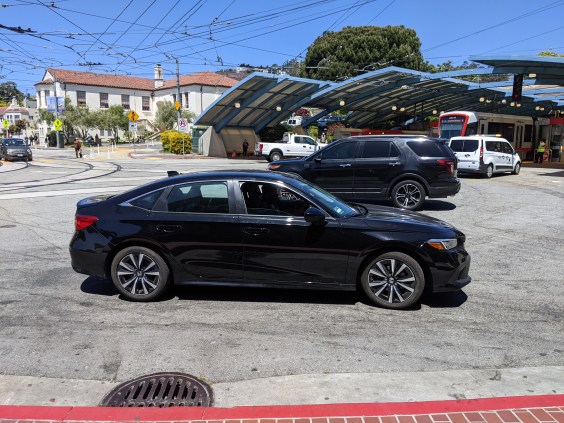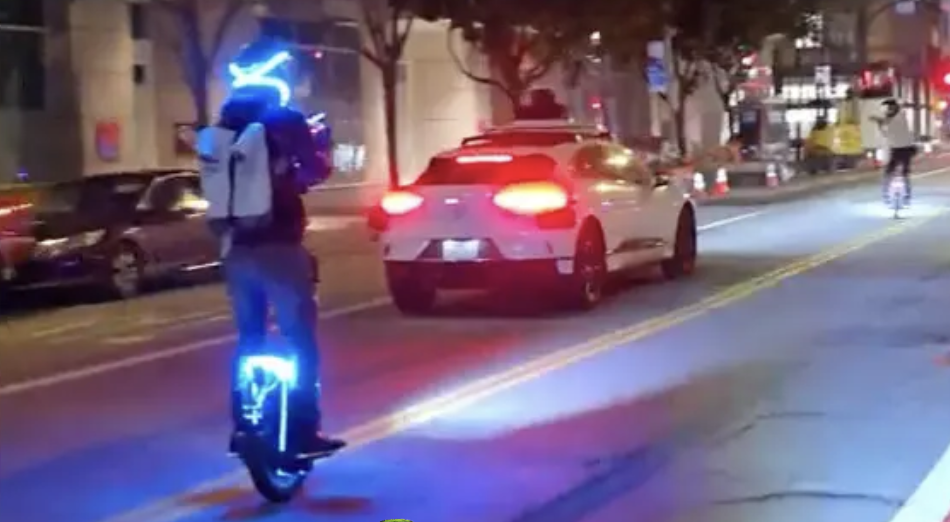California Needs More Bike Ticket Diversion Programs
3:49 PM PDT on October 10, 2018
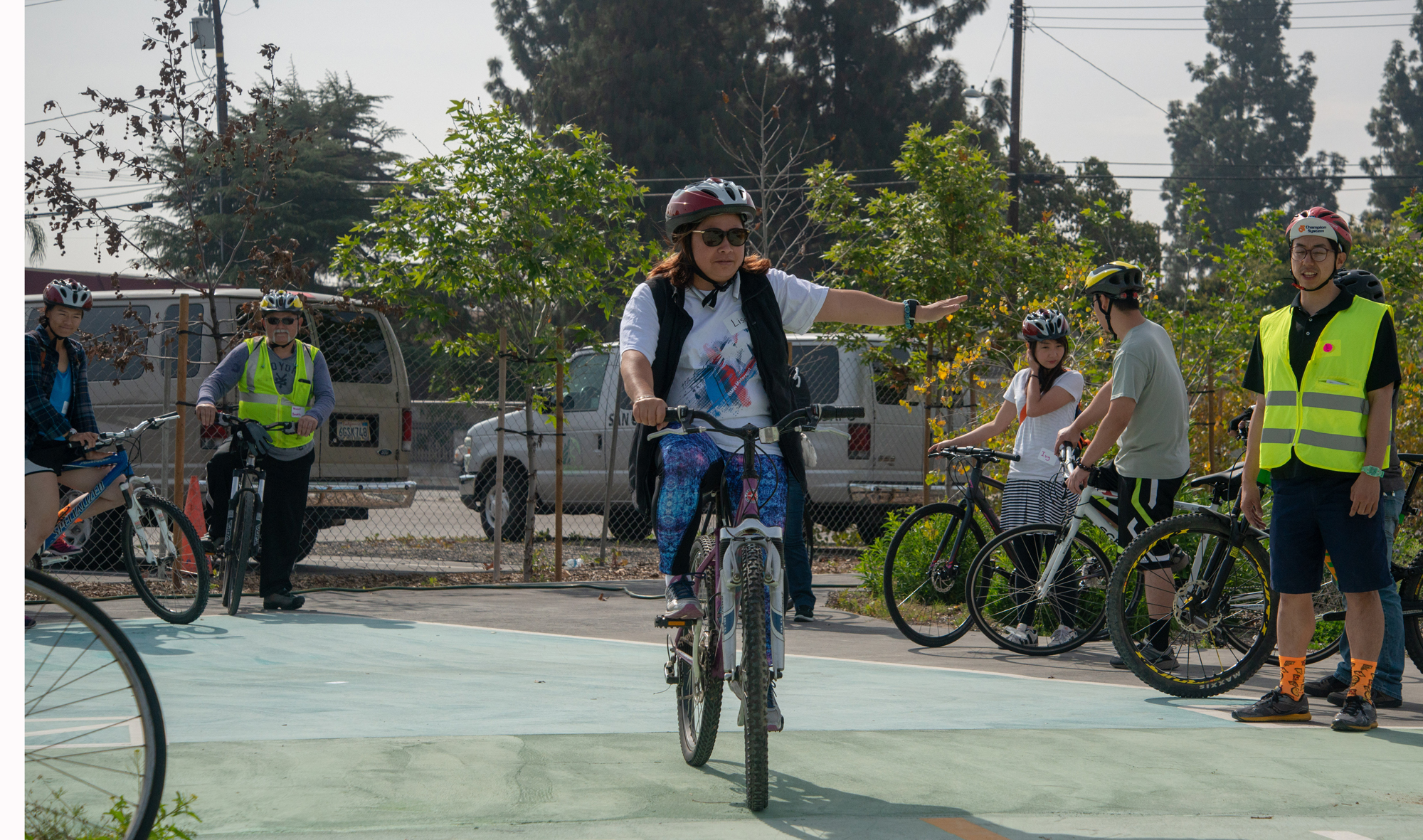
Students practice signaling and other skills at Bike SGV’s City Cycling class. Photo courtesy BikeSGV
Note: GJEL Accident Attorneys regularly sponsors coverage on Streetsblog San Francisco and Streetsblog California. Unless noted in the story, GJEL Accident Attorneys is not consulted for the content or editorial direction of the sponsored content.
Andrew Yip of BikeSanGabrielValley (BikeSGV) recently tweeted out a thread about a bike rider who got a ticket for riding on the sidewalk. A recent immigrant, he didn't understand why he had been stopped, and had to wait around for the police to find a translator to explain it to him.
According to Yip, the man—Mr. L--makes little money although he works six days a week, and the citation was going to cost him at least $240. When he finally got a translator and was able to go to court, he explained that he couldn't afford to pay the fine. “I am low income and the fine is worth five times my bike's worth,” Yip says Mr. L told him later. "It's one thing that I forego a day's wages as a form of a life lesson, but that's too much money for me. That's several days plus the time off work to go to court."
The court's response was an “offer” to serve jail time. “If you are poor, then you go to jail? I didn't hurt anyone. How is this punishment fair?" Mr. L asked.
Luckily for him, this happened in the city of El Monte, where BikeSGV has worked with the courts to set up a program that lets ticketed riders take a bike class in lieu of paying a fine. These diversion programs are common for ticketed car drivers, but few exist for bicyclists despite the 2015 passage of a law allowing them.
Mr. L's experience highlights the dire need for such programs. “"My bike is worth $40,” he told Yip. “The sidewalk riding citation is $197, and I have to take time off to go to court. How can you fine someone a citation that's worth more than their bicycle that they rely on to get around?"
Once he learned about the class, it still wasn't easy for Mr. L to find it. He speaks both Chinese and Vietnamese, but doesn't read either of those languages, so he can't use email or even online maps. He tried for three weeks to find BikeSGV's location, until finally he happened upon Yip in the parking lot of the former grammar school where the offices are housed. Another stroke of luck for Mr. L: Yip speaks Chinese.
BikeSGV offers regular bike education courses, based on the League of American Bicycle curriculum. Their 3-hour class covers laws that apply to bikes and how to ride safely on urban streets. Their instructors speak Spanish, Chinese, and English, and the classes are paid for by grants from Metro. They are free to participants, and open to the public.
They were set up as an educational program, and not every student in them is there because they got a ticket. But those that are receive a verification letter once they complete the class, and they take it back to the court to get their fines waived.
Mr. L's experience was no fluke. BikeSGV keeps track of its student's citations: what they're for, the size of fines, and the ages of the people cited. According to Yip, about half of the people with tickets are youth, and “a good chunk are homeless, or low-income; some are day laborers,” he said. “They're getting fines that are eight, nine times the worth of their bike—and that's all they have.”
“My colleague Jose has worked with dozens of people who get citations and go through his class,” he said. The worst case was a youth that received a fine of $960 for riding a bike on the sidewalk without a helmet while wearing earphones—and, said Yip, for riding the wrong way on the sidewalk, “which isn't even a thing.”
“These are people that ride not because it's fun or for recreation--this is the way they have to get around,” said Yip. He said it's a problem of the so-called “invisible bike rider” that no one sees and therefore no one believes exist. “They ride early in the morning and late at night—that's why you never see them. But their bikes are behind the restaurants. They work in kitchens, hotels, retail, construction...They bike to work because they don't own a car.”
“It's a question of equity,” said Yip. “We're very passionate about this because we see how these citations can be a huge burden for people.”
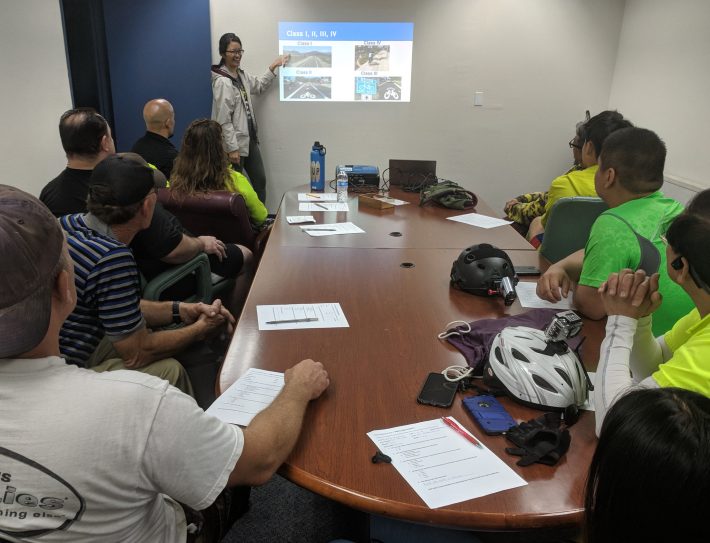
Another key point to remember is that the education program is providing people with important information. It's not just new immigrants who don't understand traffic law. With driver education disappearing from school curriculums, young Californians pick up what they know about navigating the streets as much from observation as from any official program. It's not a good educational model, and the supplemental education—maybe from LaughALot Traffic School after receiving a ticket—can be weak.
But people don't necessarily break the law because they don't know about it. Yip's tweet thread includes Mr. L's explanation for riding on the sidewalk: he “already knew the rules of the road, but his reasoning for riding on the sidewalk was because it was dangerous to ride on the street,” he wrote. There are no bike lanes where he needs to ride, so where is he supposed to go? “I understand it is illegal to ride on the sidewalk but sometimes I feel safer to do that instead of on the streets with speeding cars. They don't even look around here,” said Mr. L.
“Ride on the street or you'll get fined several days worth of your wage/jail. Not safe? Too bad, no bike lanes for you. Go get a car,” wrote Yip. “We might be fearful of biking in traffic, but if you're poor, you worry about that AND the possibility of losing a lot of your hard-earned money. This means livelihood, a place to live, or food on the table. All because you just want to bike and stay alive while doing it.”
Mr. L's experience shows that more diversion programs like BikeSGV's are clearly needed. Right now, few cities have them. The state—and cities and courts and police departments—are relying on local advocacy groups to push to make them happen, instead of leading the way. And while BikeSGV—and Bike East Bay, the San Francisco Bike Coalition, the Marin County Bicycle Coalition, Bike Bakersfield, and other advocacy organizations throughout the state—along with a few cities like Sacramento and Huntington Beach are running successful educational programs, there are many more parts of the state that have nothing.
And even in those areas it's a lot to ask local advocacy groups to figure it out. If there's no champion on the staff at the police department or court, it can be difficult to get anyone interested. BikeSGV has had success in El Monte largely because there is a single judge who oversees the traffic court there who has been an enthusiastic supporter. They have had less luck with other cities or court systems, such as in West Covina, where eight or nine judges share traffic court duties and staff have been unresponsive.
But handing out citations is not the ideal way to educate people, and it remains a hardship for some even when the fine can be waived. As Yip points out, you still need to factor in that people work, and taking time off to get to court--twice--can mean losing a chunk of income. For people just barely getting by, that could be devastating.
“It's better to provide education--and to just fix the streets--than to ticket people,” said Yip. “They're riding on sidewalks because they don't feel safe. You can't blame them.”
Mr. L was able to complete the course and get his fine waived. But he still has to ride his bike on the dangerous streets to get to work.
Streetsblog California editor Melanie Curry has been thinking about transportation, and how to improve conditions for bicyclists, ever since commuting to school by bike long before bike lanes were a thing. She was Managing Editor at the East Bay Express, editor of Access Magazine for the University of California Transportation Center, and earned her Masters in City Planning from UC Berkeley.
Stay in touch
Sign up for our free newsletter
More from Streetsblog California
Active Streets Mission-to-Mission – Open Thread
Tens of thousands of participants biked, walked, skated and scootered on car-free streets through San Gabriel, South Pasadena and Alhambra
Four Things to Know About the Historic Automatic Emergency Braking Rule
The new automatic emergency braking rule is an important step forward for road safety — but don't expect it to save many lives on its own.
Supervisor Melgar Betrays Promises, Sells Out Family Killed in West Portal
Well that didn't take long
Tuesday’s Headlines
Robotaxi breaks the law, Waymo defends it; Whistleblower sues Caltrans; SANDAG gets a new leader; Zero-emission zones are helping fight pollution; More
